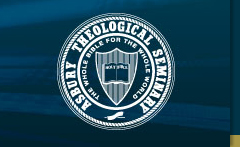
ATS Dissertations
Files
Download Full Text (44.8 MB)
Summary
At the start of the 21st century, Christian educators are faced with the challenge of equipping Christian disciples for participation in God's present mission in the world, a worldthatisinthemidstofradicalchangeduetotheforcesofglobalization. Christians around the world, most of whom will never have the opportunity to participate in formal ministerial education, are being called upon to demonstrate a missional multicultural witnessandgloballevelofcitizenshipinthecommunitieswheretheylive. Giventhis reality, Christian education at every level needs to discover a pedagogical process for preparing all Christians for missionary vocations that address the emerging missiological realities ofthe 21st century.
This research was undertaken in order to investigate the degree to which the principles of intercultural communication and experiential education theories and practices, such as those developed by John Dewey, Paulo Freire, Thomas Groome, Ann Lutterman-Aguilar, and Judith and Sherwood Lingenfelter, can inform and enhance missiological education more effectively than traditional (formal) pedagogical models. "Essential Ingredients" for a "Missional Experiential Education" (MEE) are presented, providing insights for an educational praxis applicable to local churches, institutions of higher learning, missionary societies, short-term mission agencies, and para-church ministries.
This study included both qualitative and quantitative research from three educational programs. Each learning environment in the study included the following initial ingredients: (1) an experiential pedagogy, (2) an intercultural immersion experience(s). and (3) a multicultural learning community. Although they shared common educational goals and a similar pedagogical philosophy, there were significant differences in their construct, location, and learning audience. The first program in this research was a I5-week undergraduate course in intercultural communication. Students participated in 30 hours o f service-learning with organizations that serve immigrants and international refugees. The second program was a church and community-based course in urban ministry, involving two sixteen-week semesters meeting one evening per week forthreehours. Sessionswerefacilitatedbyadiversityoflocalresident-expertsfrom non-profits, municipal offices, businesses, churches and ministries. The third program provides both short-term and semester-long international cross-cultural immersion programs for universities, seminaries, churches, and community organizations. An undergraduate course in religious studies was the focus ofstudy. Students had nine hours of class prior to a ten-day travel seminar, followed by six hours of class upon returning home.
OCLC
166404421
Series
Thesis (Ph. D.), 2007
Publication Date
3-2007
Adviser
Russell West
Keywords
2007, Ph., D., 166404421, Training, Missionaries, Christian, Education, Teaching, Methods, Experiential, Learning, Intercultural, Communication, 21st, Century, Christianity, Globalization
Disciplines
Religious Thought, Theology and Philosophy of Religion
Biography
Includes bibliographical references (leaves 229-255).
Call Number
BV2091 .F46 2007
Language
English


Comments
Thesis (Ph.D.)--Asbury Theological Seminary, 2007.